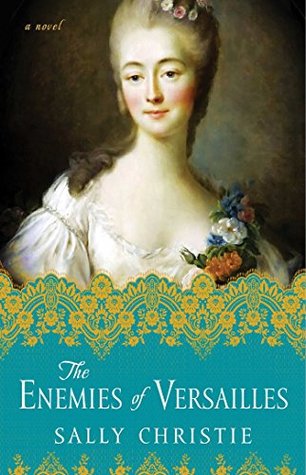 The Enemies of Versailles (The Mistresses of Versailles Trilogy #3) by Sally Christie
The Enemies of Versailles (The Mistresses of Versailles Trilogy #3) by Sally Christie Formats available: paperback, ebook, audiobook
Series: Mistresses of Versailles #3
Pages: 416
Published by Atria Books on March 21st 2017
Purchasing Info: Author's Website, Publisher's Website, Amazon, Barnes & Noble, Kobo, Bookshop.org
Goodreads
In the final installment of Sally Christie’s “tantalizing” (New York Daily News) Mistresses of Versailles trilogy, Jeanne Becu, a woman of astounding beauty but humble birth, works her way from the grimy back streets of Paris to the palace of Versailles, where the aging King Louis XV has become a jaded and bitter old philanderer. Jeanne bursts into his life and, as the Comtesse du Barry, quickly becomes his official mistress.
“That beastly bourgeois Pompadour was one thing; a common prostitute quite another kettle of fish.”
After decades suffering the King's endless stream of Royal Favorites, the princesses of the Court have reached a breaking point. Horrified that he would bring the lowborn Comtesse du Barry into the hallowed halls of Versailles, Louis XV’s daughters, led by the indomitable Madame Adelaide, vow eternal enmity and enlist the young dauphiness Marie Antoinette in their fight against the new mistress. But as tensions rise and the French Revolution draws closer, a prostitute in the palace soon becomes the least of the nobility’s concerns.
Told in Christie’s witty and engaging style, the final book in The Mistresses of Versailles trilogy will delight and entrance fans as it once again brings to life the sumptuous and cruel world of eighteenth century Versailles, and France as it approaches inevitable revolution.
My Review:
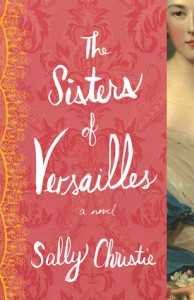 The Enemies of Versailles, and the entire series of the Mistresses of Versailles, beginning with The Sisters of Versailles and continuing with The Rivals of Versailles, is a fascinating blend of historical fiction and herstorical fiction, telling the story of the reign of Louis XV of France through the eyes of the women who shared his bed and/or his heart.
The Enemies of Versailles, and the entire series of the Mistresses of Versailles, beginning with The Sisters of Versailles and continuing with The Rivals of Versailles, is a fascinating blend of historical fiction and herstorical fiction, telling the story of the reign of Louis XV of France through the eyes of the women who shared his bed and/or his heart.
So instead of viewing this history through the lives of its movers and shakers, usually male, we see the king from the perspective of his mistresses and, in the case of this final book in the series, from the point of view of his oldest daughter, the unmarried and extremely upright (also uptight in modern terms) Adelaide.
It’s not a pretty picture, and it isn’t intended to be, particularly at this point late in the king’s life. It is to Louis XV that the famous phrase is attributed, “apres moi, le deluge”. And while he may not have known precisely what horrors the deluge of the French Revolution was destined to unleash, it is clear from this account that he was well aware that whatever followed him was going to be less rich, less glorious, less regal, and pretty much just less of everything.
It turned out he was right. From the perspective of the monarchy and the aristocracy, the Revolution indeed brought much less of everything, except blood. There was plenty of that. An outcome that Louis himself does not live to see, although the principal narrators of this story, his daughter Adelaide and his last mistress, the Duchesse du Barry, witness the revolution in all its horror.
In this book, and the trilogy as a whole, Louis appears as a self-indulgent and even indolent ruler, willing to let his advisors run the country while he dallies with his mistresses and escapes from the pomp and ceremony of court life as much as possible. And, of course, his advisors are more than happy to take the burdens of monarchy off of his hands, the better to further their own ambitions.
At the center of this book, and of the final years of Louis’ life, we see a man caught between two opposing forces. On the one side, his daughter Adelaide, ruthlessly virtuous, desiring above all else to save her father’s eternal soul by persuading him to give up his licentious ways. On his other side, the courtesan Jeanne Becu, Duchesse du Barry, encouraging the king to while away his hours in her company, giving her as many beautiful presents as possible and ignoring the world outside her boudoir.
Adelaide never stands a chance. Louis always prefers his mistress’ charms, whoever that mistress might be. But as we watch the court squabble over who should have precedence, and how best to capture the attention of the aging king, we know that we are watching the equivalent of re-arranging the deck chairs on the Titanic, or fiddling while Paris, substituting for Rome in the famous saying, burns.
Escape Rating B: This is a series about which I have had mixed feelings from the very beginning, and I leave the series with lots of them. But most of those mixed feelings are about the history portrayed, rather than the portrayal itself. In other words, this series made me think. Among other thoughts, making me glad that I am reading about this period rather than living in it.
The world portrayed in the series is fascinating, enthralling, rich, decadent and strange. There are two sayings that seem to apply equally: “The past is another country, they do things differently there” and, to paraphrase just a bit, “the rich are very, very different from you and me”.
One of the things that strikes me is the appalling waste. Not just the wretched excesses of the court, but also the waste of the brains and talent of the women in this series, and this era. As much as I would not want to have spent five minutes in her company, I found Adelaide and to a lesser extent her sisters, to be utterly pitiable. They all had brains, and probably talents of one sort or another. And absolutely no outlets for any of that except through moral rectitude to the point of priggishness, extreme protection of their privileges and status, and endless backbiting and jostling for position in a court and an era that simply saw them as less than nothing.
Then of course, there’s the wretched excess of the court itself. That so much time and effort was expended, and so much wealth wasted, on ceremony that was extended and elaborated somewhere past the nth degree fascinates and disgusts at the same time.
The Revolution was a bloodbath of epic proportions, and yet it is all too easy to see it looming on the horizon, at least from our viewpoint, and wonder why no one at the time seriously saw it coming. But the same is true, to a much less bloody extent, in the run up to the American Revolution. Hindsight, as always, is 20/20.
About the books and the series. Looking back, there is one thing about each of the books that made the first parts a bit difficult to get over. In each book, the story of the mistress or mistresses begins with their childhood. And while the child certainly makes the woman, that period of each of their lives just wasn’t as compelling, or even as interesting, as what happens to each of them as they find themselves, or are thrust in the case of duBarry, into the king’s orbit. One reason I found Adelaide sympathetic in this particular book was that by the time this story begins, she is an adult, even if her understanding is somewhat lacking in particulars because of her very peculiar sheltered life.
In some ways, both Adelaide and du Barry remain infantilized by their circumstances until the Revolution robs everyone of any possible pretensions. They had to either grow up or die. That one did and one did not provides a last and final contrast in the remarkable circumstances of their lives.
~~~~~~ GIVEAWAY ~~~~~~
I’m giving away a copy of The Enemies of Versailles to one lucky US or Canadian commenter.





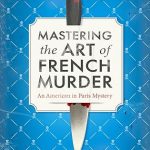





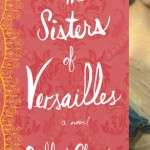





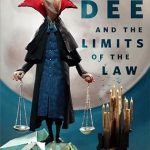
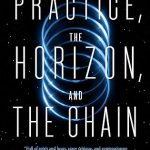

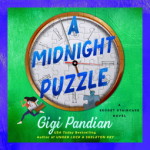

I’ve only read the first book in this series. I will read The Rivals of Versailles before The Enemies. Thanks for the post and your thoughts. I think I’d rather read about the unsung heroes.
Carol L
Thanks for this fascinating book which I would enjoy. The unsung heroes interest me.
The stories I’m unfamiliar with, about the unsung heroes in history, interest me more, mostly because those tend to be the stories about the women, it’s like with the movie Hidden Figures, suddenly we’re fiding out that it wasn’t entirely men behind the first space explorations, that’s the stuff I want to know.
I’m good with both actually. I enjoy learning more about the bigwigs but the people behind the scenes can be fascinating too. Thanks.
I enjoy both! Maybe the unsung figures a little more. Thank you
either
I want to read about the unsung of history as I will broaden my knowledge by doing so.
I picked up the first book in this series, but haven’t gotten around to it yet. (Never enough time!)
Movers and shakers vs unsung heroes? I’ll waffle and say I like my history both ways, but I’d probably go with movers and shakers if I had to choose.
I enjoy reading both! This one sounds like a good one too! 🙂
Like you I am incredibly glad to be reading about this era rather than living as a part of it. What a crazy, intense, horrible time to have lived!
Thanks for being a part of the tour.
I’d rather read about the unsung figures in history.
I like unsung figures!
I would rather read about the unsung figures.
In general, I think I would like to read about the unsung heroes, but it really depends on the story.